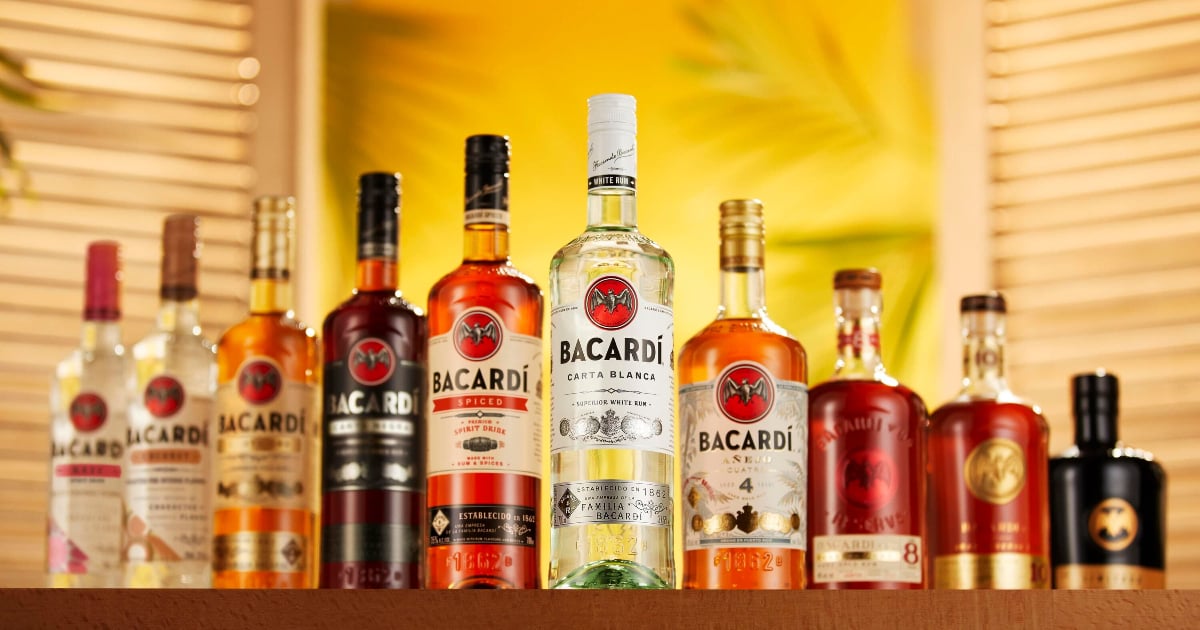
The President of the United States, Joe Biden, signed the No Stolen Trademarks Honored in America Act of 2023, known as the "Bacardi Act," last Sunday. This law aims to protect the rights of trademarks seized by the Cuban government since 1959.
The regulations prohibit U.S. courts and agencies from recognizing trademarks that have been expropriated without the consent of their original owners, setting a precedent for entrepreneurs whose properties were nationalized following the so-called "Cuban Revolution," as highlighted by the site Café Fuerte.
The White House confirmed that the law was passed with broad bipartisan support in both chambers of Congress. According to the official statement, this legislation prevents the validation of trademark rights linked to expropriated goods or companies, unless the original owner or their heirs provide explicit consent.
At the same time, President Biden thanked the lawmakers who championed this measure, including Darrell Issa (R) and Debbie Wasserman-Schultz (D), who introduced the bill in 2023.
Impact on the "Havana Club" case
The law has direct implications for the long-standing litigation concerning the "Havana Club" brand, a rum whose production and marketing have been the subject of legal disputes between Bacardí, the Cuban regime, and its French business partner, Pernod Ricard.
In 1995, Bacardí began selling rum under this brand in the United States after acquiring it from the Arechabala family, the original founders of the business. However, the Cuban government, through its state company Cubaexport, also claims rights to the brand, supported by Pernod Ricard.
Cubaexport registered the brand in the United States for the first time in 1976, but encountered difficulties in renewing its registration due to the U.S. embargo and restrictions imposed by the Office of Foreign Assets Control (OFAC).
In 2016, the Patent and Trademark Office (PTO) renewed the license for Cubaexport, triggering a lawsuit from Bacardí that reached the Fourth Circuit Court of Appeals in 2023, which ruled in favor of the Bermuda-based company.
With this new legislation, the PTO and other federal agencies will have less leeway to validate trademark rights associated with confiscated properties, strengthening Bacardi's position in this conflict and potentially impacting Cuban exports of "Havana Club."
Reaction of the Cuban regime
The Cuban regime strongly rejected the signing of this law, labeling it an aggressive measure and a violation of international law.
Cuban Foreign Minister Bruno Rodríguez Parrilla denounced that the regulation aims primarily to strip Cubaexport of its rights to the brand.
In addition, Johana Tablada de la Torre, director for the United States at the Cuban Ministry of Foreign Affairs, stated that the legislation aims to block the renewal of the "Havana Club" brand in the United States, scheduled for 2026.
The "Havana Club" brand is one of the main alcoholic beverage exports from Cuba, generating millions in profits. According to AFP, it currently cannot be sold in the United States due to the embargo, but it remains a leading product in international markets, exported to more than 120 countries.
Historical and political context
The conflict surrounding the intellectual property of brands confiscated by the Cuban regime is situated within the economic and political tensions between Cuba and the United States, which have been exacerbated since the embargo was imposed in 1962.
Despite expectations for relief under the Biden administration, many of the restrictions tightened during Donald Trump's presidency remain in place.
Founded in Santiago de Cuba in 1862, Bacardí represents not only a historic brand but also a symbol of the impact of expropriations by the Cuban regime on family-owned businesses and foreign assets.
The signing of this law symbolizes a victory for companies like Bacardi and a setback for the Cuban regime's ambitions to retain its rights over key brands.
Frequently Asked Questions about the "Bacardi Law" and its Implications
What is the "Bacardi Law" and what is its main objective?
The "Bacardi Law," officially known as the "No Stolen Trademarks Honored in America Act of 2023," is legislation signed by U.S. President Joe Biden that aims to protect the rights of trademarks confiscated by the Cuban government since 1959. Its main objective is to prohibit U.S. courts and agencies from recognizing trademarks that were expropriated without the consent of their original owners. This law sets a precedent for entrepreneurs whose properties were nationalized following the Cuban revolution.
How does the "Bacardi Law" affect the case of the "Havana Club" brand?
The "Bacardi Law" has direct implications for the legal dispute over the "Havana Club" brand, which has been contested between Bacardi and the Cuban regime along with its French partner Pernod Ricard. With this new legislation, U.S. authorities will have less room to validate trademark rights associated with confiscated properties, strengthening Bacardi's position in this conflict and potentially impacting Cuban exports of "Havana Club."
What has been the Cuban regime's reaction to the "Bacardi Law"?
The Cuban regime strongly rejected the signing of the "Bacardi Law," describing it as an aggressive measure and a violation of international law. According to Cuban Foreign Minister Bruno Rodríguez Parrilla, the legislation aims to strip Cubaexport of its rights to the "Havana Club" brand. Furthermore, it is argued that the law violates international regulations by paving the way for the "theft" of legally registered trademarks in the United States.
What does the "Bacardi Law" mean for relations between Cuba and the United States?
The signing of the "Bacardi Law" symbolizes a new obstacle in the already strained relations between Cuba and the United States. The law strengthens U.S. policies of not recognizing expropriations carried out by the Cuban regime and provides a legal mechanism for entrepreneurs affected by nationalizations to seek justice. This could escalate economic and political tensions between the two countries, especially in a context where the embargo remains in place and expectations for relief have been limited under the Biden administration.
Filed under: